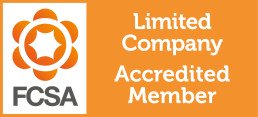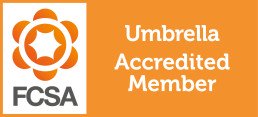Share this article

On Thursday 26th November 2020, HMRC published a report entitled “Use of marketed tax avoidance schemes in the UK”. The report outlines what the government knows about the current state of the avoidance market, and the steps they are taking to tackle tax avoidance in the UK.
Introduction to HMRC’s use of marketed tax avoidance schemes in the UK report
Over the last six years, the amount of tax the UK has lost to tax avoidance has fallen by around half, and the market has seen a significant shift in the way the promoters are selling tax avoidance schemes.
Mary Ainston, Counter-Avoidance Director, said: “It’s no longer about higher-income individuals using investment-based avoidance schemes involving Hollywood films or gold bullion. Instead, the market has decisively shifted towards employment-based avoidance schemes, aimed at those with middle-income levels, including contractors and agency workers.”
Only recently, for example, unscrupulous promoters of tax avoidance schemes have targeted NHS workers who returned to work to fight the spread of COVID-19.
The report responds to encouragement from the Treasury Select Committee to share what is known about the current state of the tax avoidance market and the steps HMRC is taking to tighten the rules and close the schemes faster.
The report is available to view and download on the government’s website.
What is a tax avoidance scheme?
A tax avoidance scheme is a company which is set up with the sole purpose of reducing the amount of tax that someone has to pay – whether it is via an offshore loan scheme or trust.
The reality is that very few tax avoidance schemes give the tax advantage they claim – as these payments are no different to regular income. Therefore, tax and National Insurance Contributions (NICs) still apply.
Anyone entering into a tax avoidance scheme is taking a considerable risk and could end up owing HMRC thousands of pounds in underpaid tax.
The size of the avoidance market in the UK
Tax avoidance isn’t as widespread as you may think and only £1.7 billion was lost to tax avoidance in the UK in the 2018/19 tax year – half of which was lost to Corporation Tax mitigation schemes. HMRC found that £600 million related to schemes marketed to individuals, predominately made up of avoidance of Income Tax, NICs and Capital Gains Tax.
In the same tax year, tax evasion accounted for £4.6 billion, with what HMRC references as “legal interpretation” costing a further £4.9 billion. Non-payment and criminal attacks accounted for almost £10 billion.
The figures have fallen significantly since the 2013/14 tax year. This is because of the introductions of the general anti-abuse rule in 2013 and accelerated payment notices and follower notices in 2014, which HMRC states “fundamentally changed the economics of avoidance.”
However, the report highlights an anomaly in the figures. Whilst the number of employers involved in tax avoidance schemes has fallen, there has been an increase in the number of individuals using tax avoidance schemes. HMRC correlates this increase to the significant rise of self-employed professionals, agency workers, and people being paid through employment intermediaries.
Changes to the characteristics of the market
In 2013 to 2014, the main types of avoidance schemes were disguised remuneration and sideways loss created to offset tax liabilities. For example, the “Icebreaker” and “Ingenious” schemes used artificial loses arising from investments to avoid tax.
Today, the investment schemes have largely disappeared, and the market predominantly consists of disguised remuneration avoidance schemes. Typically, individuals using these schemes will receive their earnings via a series of loans, grants, shares, bonuses, or capital payments, which are paid from an offshore trust which is usually located in a tax haven.
These types of schemes are set up in a way that the recipient is not required to repay the loans, and in doing so, avoid the tax that is due.
HMRC has consistently challenged disguised remuneration schemes and introduced legislation in the Finance Act 2017 to draw a line under the historic use of disguised remuneration schemes. The introduction of the Loan Charge means that HMRC can investigate anyone who has previously used a tax avoidance scheme (whether knowingly or not) and they can reclaim every penny of underpaid tax and NICs.
What the schemes don’t advertise
Promoters who advertise the schemes do not tell their clients that they will eventually have to pay back every penny of tax they owe, as well as interest and potential penalties as a result of using the scheme. UK tax law is clear that taxpayers are accountable for paying the right amount of tax and ensuring that they conduct proper due diligence on any intermediary they choose to use.
How to spot a tax avoidance scheme
Thankfully there are some tell-tale signs to help you to spot a tax avoidance scheme. The schemes use phrases such as “HMRC approved” which sound convincing. Disguised remuneration schemes will often advertise high take home pay rates such as “up to 90% take home pay”, which under UK tax law is just not possible.
The steps HMRC is taking to tackle tax avoidance
Once HMRC is aware of a scheme, they will challenge the promoters and the scheme under the Disclosure of Tax Avoidance (DOTAS) and Promoter of Tax Avoidance Schemes (POTAS) rules. They will shut down every scheme, which is found to be promoting tax avoidance.
HMRC has committed to working even more closely with partner bodies to utilise the full range of sanctions available to fight promoters. Most recently, HMRC joined forces with the Advertising Standards Agency to issue a joint Enforcement Notice to outline what promoters can include in their advertising. HMRC has also worked with accountancy bodies to strengthen their code of conduct.
HMRC has also launched a new early intervention project to support taxpayers get out of tax avoidance schemes and settle their outstanding bills before their outstanding liability becomes substantial. Representatives are contacting individuals using these schemes to make them aware of their concerns and help them understand the steps they need to take to settle their tax affairs.
FCSA welcomes HMRC’s report
FCSA Chief Executive Phil Pluck welcomes the report: “I am delighted that HMRC has published this report. It highlights that tax avoidance schemes are still prolific”.
Phil added: “Loan schemes are marketed to workers to defraud them. Offers of 90% take home pay are always false. If an offer seems too good to be true, then it almost certainly is. Please remember that a compliant umbrella company is your employer, and as such, they are required to take National Insurance and Income Tax out of your pay and pass it onto HMRC on your behalf.”
The importance of only using FCSA accredited providers
FCSA accredited umbrella companies and contractor accountants have to pass a rigorous annual audit conducted by independent auditors to ensure their processes are compliant with UK tax law. By using an FCSA accredited provider, you can be sure you will always pay the correct amount of tax as per HMRC legislation.
Are you looking for an FCSA accredited umbrella company or contractor accountant? Churchill Knight & Associates Ltd and Churchill Knight Umbrella are proud to have achieved FCSA accreditation and would be delighted to welcome you to our service! Please give our expert team a call on 01707 871622 to find out how we can support you.
About Churchill Knight
Founded by an IT Contractor in 1998, Churchill Knight has become one of the most respected contractor accountants in the UK. We’ve helped over 20,000 contractors with their accountancy requirements. As well as our accountancy services, we also have an industry-leading PAYE umbrella company and dedicated in-house personal tax department. Whichever service you choose, you can move forward with complete peace of mind. We are proud of the reputation we’ve built over the years, and our FCSA accreditation proves how committed we are to compliance within our sector. Keep reading…


We're regularly adding new, helpful content
The Churchill Knight blog is regularly updated with helpful content for contractors and freelancers – especially articles that answer the most frequently asked questions about umbrella companies! Please pop back shortly to see the latest articles written by Andrew Trodden (Marketing Manager) and Clare Denison (Marketing Executive).
